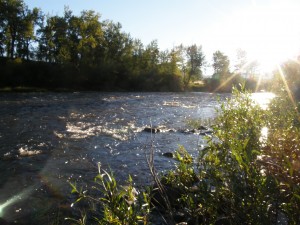Congress passed an Act in 1968;
The Wild & Scenic Rivers Act.
What we know is, there have been water and power wars across the world for a very, very long time and it all starts with a Stream or a RIVER!
Starting and keeping a conversation alive, is very important to maintain a vigilance that keeps our water, lands and the ecosystems they support intact.
Enjoy this rough-cut video, we should listen to and please share it often. Reminding us that it is our job to keep the conversations like this open and an active dialogue for years. These conversations can keep an already fought for and passed Act alive, doing what it was meant to do, in the case of this act, preventing our rivers and it’s path from destruction or devastation with a long term plan to protect it, forever. The criteria for this act, the river or stream must possess one or more special values be in place, one of which is free flowing.
People of every State should be doing this, each state has a stream or river, possibly more than one they should be considering this act to protect. By not keeping these dialogues open and on going, the hard work of all the people before you becomes mute, and their time and effort will have been wasted.
There is a balance we need to find with nature, until we can find the balance, we need to learn to wait until a viable plan can be put into place that works for the resource. Most of the time, a really good thing gets supported when it is created, like this act, back in 1968- yeah we passed it- sadly the truth is- then we forget it is there, and stop using it. We should be paying more attention, constantly.
Creating a Wild & Scenic River, means getting with the local people, do your research on the river, and contact your congress member and meet with them – they will listen, by being pro-active you can make a change that will leave a life long legacy for you and your home waters.
We should always be thinking about what is already here, and determining if it REALLY needs to be modernized, tamed, or destroyed – or the real question is; should it be? Not always.
Andy



